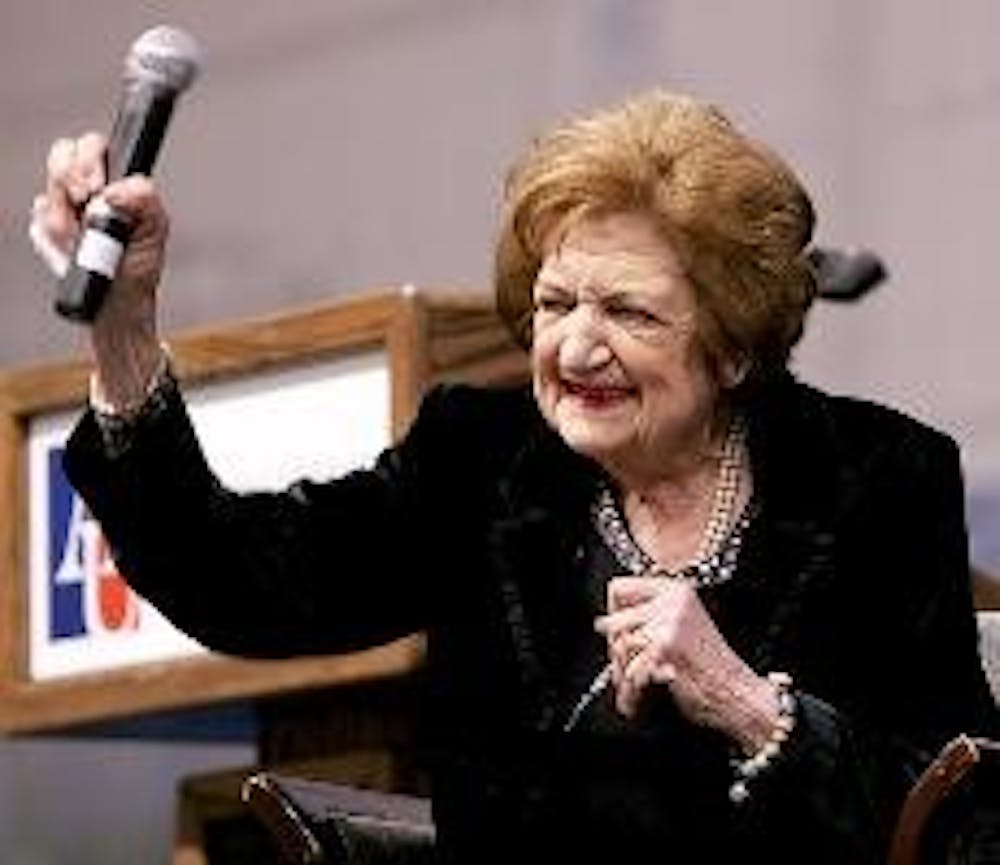White House correspondents David Gregory and Helen Thomas disagreed during an event Saturday night in Bender Arena on how much to blame the press for its coverage leading up to the U.S. invasion of Iraq in 2003 The White House and Pentagon press corps faltered during the run-up to the Iraq invasion, said Thomas, a columnist for Hearst Newspapers.
"The press went along with the bogus threats after 9/11, hook, line and sinker," she said. "They did not want to be called unpatriotic, un-American. They ran scared. I've covered the White House since the Kennedy era, and I have never known a more timid press corps."
The Bush administration has been the most secretive administration Thomas has covered, even compared to the Richard Nixon administration when Nixon resigned because of the Watergate scandal, she said. However, the press was also to blame because it was not skeptical during the early part of Nixon's tenure.
"Never underestimate the power of fear," she said. "No president wants to be questioned. ... What's to be afraid of? Being chastised by a president? Who is he but a public servant? We pay him - he works for us."
The press asked the right questions before the invasion, said Gregory, chief White House correspondent for NBC News and a 1992 graduate from the School of International Service.
"The country looks at what's happened in Iraq and then blames the press corps, or blames Congress or blame each other for not resisting the war more than they did," he said. "But that's through the prism of results - what's happened and what's gone wrong. The country is so divided politically that people - in this audience and beyond - look at coverage ... through their own political prism."
Other forms of media, such as the Comedy Central shows "The Daily Show with Jon Stewart" and "The Colbert Report," are evidence of targeting of news shows to niche audiences, Gregory said.
"[Stewart and Colbert are] making us laugh," he said. "They also have a point of view ... There's a reason why so many people are watching them because they're compelling to watch."
However, those shows are not a direct challenge to NBC News or similar programs, Gregory said.
"It's two different products," he said. "It's not our job to have that point of view."
Sen. Barack Obama, D-Ill., one of the candidates vying for the Democratic presidential nomination, would be the most compelling to cover in the White House, Thomas said.
"He's a new face - he might be more of an idealist," she said. "He might have some vision."
Any candidate who doesn't have previous ties to the White House would be interesting to cover, Gregory said.
"If Hillary Clinton becomes the president, she's obviously seen it, so she's going to have a leg up," he said. "I think it's interesting when you get an administration that doesn't have any connection to the White House and they're trying to figure it out as they go. What we love as reporters are unscripted moments. When you cover the White House, you don't get a lot of those."
The Kennedy Political Union and the Office of Alumni Programs sponsored the event.





